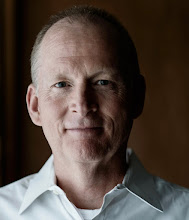 Michael Hyatt recently posted some great thoughts drawn from a quote Viktor Frankl made famous about the space between stimulus and response. Here's what Michael had to say:
Michael Hyatt recently posted some great thoughts drawn from a quote Viktor Frankl made famous about the space between stimulus and response. Here's what Michael had to say:In his bestselling book, The Seven Habits of Highly Effective People, author Stephen Covey talks about the space that exists between the stimulus and the response. In that space is the power to choose.
This space is like a giant pause button. We don’t have to react to every stimulus. Instead, we can pause, reflect, and chose our response. This is precisely what makes us human.
Unfortunately, I have not always taken advantage of this space. In the 1990s, I owned a literary agency with my business partner. One day, out of the blue, one of our clients sent my partner a scathing letter. It contained several inaccuracies and false accusations. I was furious and took up an offense.
I spent the next twenty-four hours writing and re-writing a letter to the client, defending my friend and partner. I thought I was in a better position to uphold his honor than he was.
The letter was brilliant. Or so I thought. It read like a legal brief. I took every accusation and systematically dismantled it. I wrote fourteen pages, proving beyond a shadow of a doubt that the client’s claims were baseless and without merit.
I then over-nighted the letter to the client, convinced that I had proven my case. I was sure he would call with an apology.
Almost fifteen years later, I am still waiting.
The client never responded. He didn’t acknowledge the letter. He didn’t respond to it. He just ignored it. I eventually came to the conclusion that writing long, angry letters is not a very productive exercise.
In the space between the stimulus and the response, I had not chosen well. I had simply reacted, like a dog who sees a squirrel and automatically gives chase.
But that experience didn’t keep me from firing off angry emails from time-to-time. While I had learned from my previous experience, I had not learned as much as I should have. As a result, I have continued to send blistering messages from time to time. Inevitably, I have always regretted it.
Therefore, next time I get frustrated or angry:
1) I will pause before responding. I will remember that there is a space between the stimulus and the response. That space is my opportunity to chose the wise, mature thing. I want to handle situations in a way that I don’t regret later. To quote James, I want to be "swift to hear, slow to speak, slow to wrath." (James 1:27 NKJV)
2) I will give myself time to cool down. It is amazing how different things look when you get a little perspective. I rarely need to respond immediately, and 8–24 hours later, things almost always look different. Therefore, I will take a deep breath and reflect.
3) I will not write anything in anger. This includes Twitter posts, Facebook messages, emails, and letters. If I am angry with someone, I will confront them personally, preferably in person. If that is not possible, I will call them. Launching angry salvos from the safety of my office may make me feel courageous. But it is not. It is cowardly and foolish. It does not accomplish anything good.
As leaders and Christians, we need to set a higher standard—myself included. I need to see the space between the stimulus and the response as my opportunity to make a better choice. With God’s help, I will.
What about you? How are you handling the space between the stimulus and the response?

